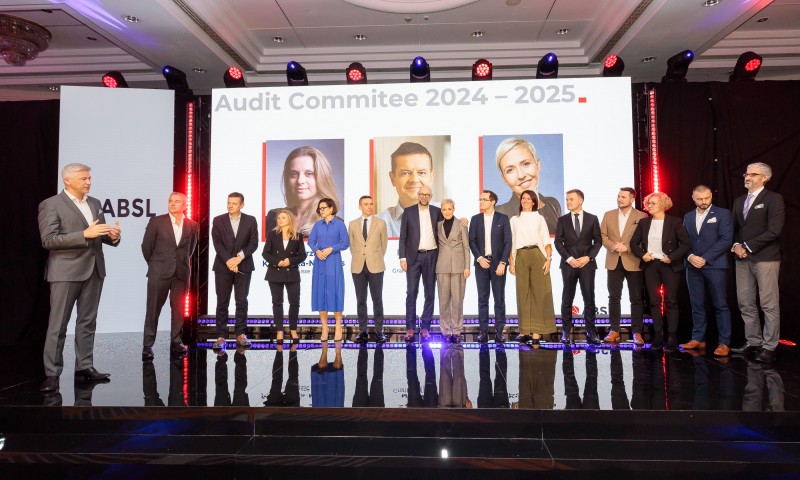Innovation in Poland's modern business services sector is on the rise
ABSL's Modern Business Services Sector in Poland 2022 report confirms that the sector continues to stand out from other industries due to its high level of innovation. More than 72 percent of the sector's representatives in Poland declared that they had introduced innovations in the last three years, compared to the enterprise sector average of 26.1 percent, recorded by the Central Statistical Office. In addition, ABSL's annual report shows that more than 25 percent of respondents stated that they have a separate product development (R&D) team in Poland. Given the increasing share of highly specialized processes in the services provided and the fact that the sector is likely to exceed half a million employees in two years, it is necessary to accelerate the transformation of the Polish education system to meet the demand for the competencies required in the future.
Data from 2022’s European Innovation Ranking shows that Poland is one of two countries that has recorded the greatest progress in innovation, representing a y-o-y increase of 4.3 percent, and an increase of 11.3 percent compared to 2015. The largest y-o-y increase for innovation in Poland, which the business services sector contributed to, was in the "business process innovators" category.
Knowledge-based services drive innovation
The business services sector in Poland is steadily growing and entering a new phase.
"For the first time, the share of highly specialized knowledge-based services (KIBS) exceeded 50 percent of all services performed in centers in Poland and is another indicator illustrating the sector’s maturity. Investors are locating an increasing number of both advanced processes as well as specialized projects which create products and services that require relevant competencies, both in the digital, and soft skill areas. One of the characteristics of knowledge-based service centers (KIBS) is the creation of innovative solutions. Data from ABSL reports confirm that, as a rule, KIBS has a higher innovation rate than traditional manufacturing companies, and higher spending on employee training, innovation, and R&D," comments Dariusz Kubacki, ABSL Vice President, Business Intelligence.
Knowledge is a source of economic growth, and the innovations created from this source are key factors in competitiveness, both for companies and economies.
"Poland is beginning to be seen through the prism of its high level of innovation. Our strength is our skilled workforce, which translates into the creation of higher-quality jobs and the transfer of decision-making and global functions to Poland. Maintaining competitiveness will depend on the ability to take a leadership position in terms of, among other things, technological solutions, R&D expenditure, systemic solutions which are focused on the competencies of the future, and strengthening education in the area of entrepreneurship, which is currently below the EU average," emphasizes Janusz Dziurzyński, President of ABSL. "Among other things, this is why the ABSL Advisory Board is involved in the academic subject of The Basics of Entrepreneurship. Among the priorities is the development of competencies related to innovation, modern technologies, digitization, and, above all, the ability to think critically, work in teams and leadership," adds Janusz Dziurzyński.
Innovation based on smart solutions
ABSL's data shows that the greatest intensity of innovation has been observed in business processes. Among knowledge-based business procedures, IT processes such as intelligent process automation (IPA) have been subject to the most innovation in the last three years. The share of business service centers using IPA is 60.9 percent, another 26.7 percent of centers plan to implement IPA in the future, with only 12.4 percent not interested in implementing the process at this time. The most commonly used IPA technology (89.2 percent of centers in Poland) is robotic process automation (RPA). More than half of the centers (52 percent) use advanced analytics, 49 percent use machine learning, and 43 percent use virtual assistants (chatbots).
From the role of a follower to that of an innovator
ABSL's analysis shows that currently one of the main challenges of the business services sector is to move from the role an imitator, which attempts to keep abreast with global standards, to that of a creator of global trends. This shift implies the need for a significant change in mentality towards greater creativity and innovation, as well as expanding decision-making competences. In the near term, the ability of Polish centers to innovate, and commercialize improved processes as well as introducing new services and solutions to the global market, will be crucial. In fact, innovation will become the dominant method of operation.
"At the end of 2024, the total number of employees in the sector may exceed half a million employees. In addition, taking into account the increase in the share of highly specialized services, it can be assumed that we will see further growth in innovation. This means that the transformation of the Polish education system must accelerate significantly, as demand for the competencies of the future is set to increase exponentially," adds Dariusz Kubacki.









